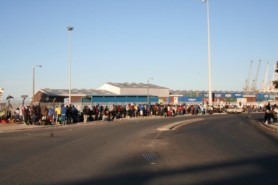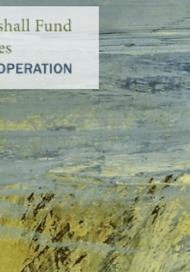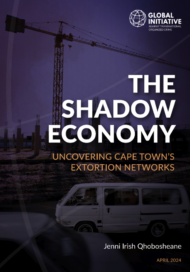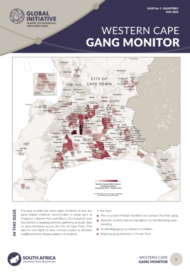Posted on 04 May 2017
Corrupt officials, a confusion about immigration practices, law and terms resulted in an illicit market that both suspends immigrants in temporary status and engages them in ‘controlling processes’ that influence honest but desperate immigrants to acquire ‘illegal legal’ documents i.e. valid and official documents generated through illicit means.
In this recently published article “Getting Angry with Honest People,” a research team confronted the normalization of the illicit market among immigrants in South Africa for “papers.” An immigrant, a man from the Democratic Republic of Congo (DRC), explained that because some South African officials get money through illicit transactions for papers, these officials become visibly frustrated with immigrants who try to obtain documents by lawful means. A security official in Cape Town confirmed this corruption and said that he believes that “85 per cent of the Department of Homeland Security (DHA) is corrupt with a couple of people trying to survive.”
It is within this context that immigrants seek papers in order to survive in South Africa. Inconsistent and obtuse immigration policies have not only confused immigrants, the general public, government administrators, and lawyers, but have also created an acceptance to ambiguity in laws that apply to foreign nationals. In this confusion, opportunities for safe mobility and residence become commodities mapped to legal status, realized in immigrant documents, and sold in an illicit market.
This paper argues that ‘South African laws and norms are orchestrated to compel participation in the illicit market’. Through the normalization of these practices, made possible and embedded in corrupt immigration officials, asylum seekers are stuck in a cycle of turning towards paying fees to ‘contacts’ or, if they are unable to pay up, partaking in other illicit activites such as drug trafficking and forced prostitution.
The original, academic article provides an account of the market in different types of immigrant papers, drawing evidence from the anger officials exhibit towards certain immigrants, the alleged corruption, the ambiguity of laws and regulations, and the prices of papers. Through its papers, the illicit market both suspends immigrants in temporary status—ensuring their continued consumption over periods of imposed waiting.
Authors: Theresa Alfaro-Velcamp, Honorary Research Associate, Centre of Criminology, University of Cape Town (UCT), South Africa; Professor, Sonoma State University, Rohnert Park, California, USA
Robert H. McLaughlin, Office of Research Integrity, UCT
Gahlia Brogneri, Co-Founder, The Adonis Musati Project, Cape Town, South Africa
Matthew Skade, Postgraduate Student, Centre of Criminology, UCT
Mark Shaw, NRF Chair and Professor, Centre of Criminology, UCT
Photo Credit: Gahlia Brogneri took the photograph showing an immigrant in need of an immigrant papers. The man’s face does not appear to protect his anonymity.



